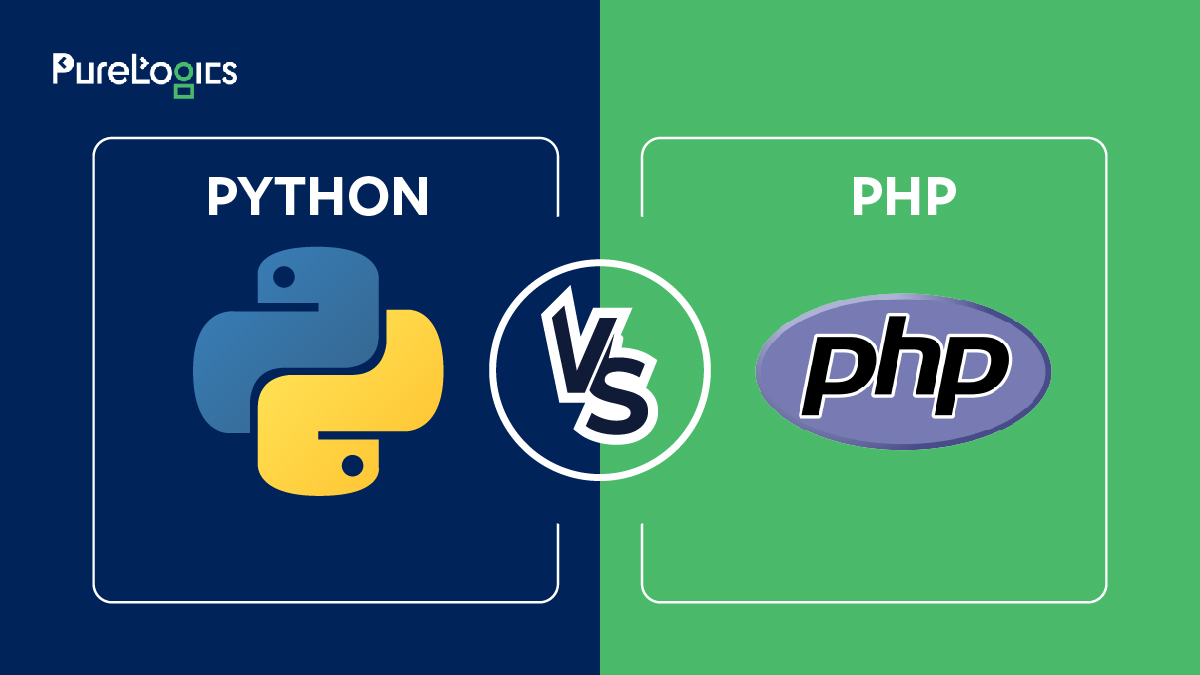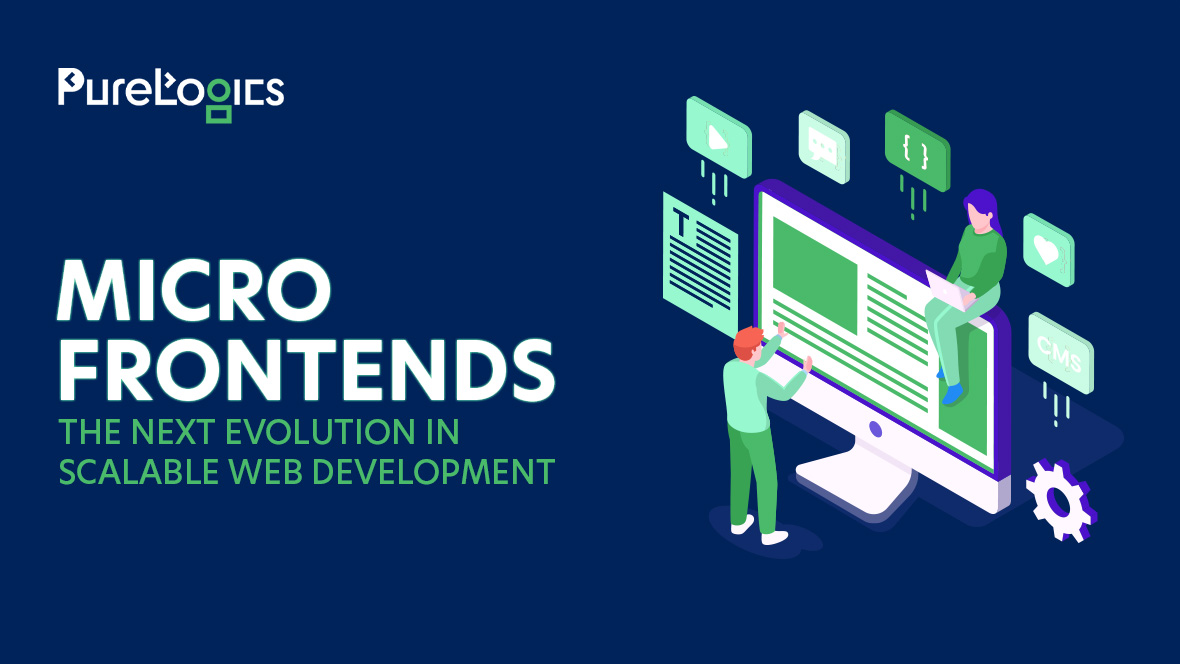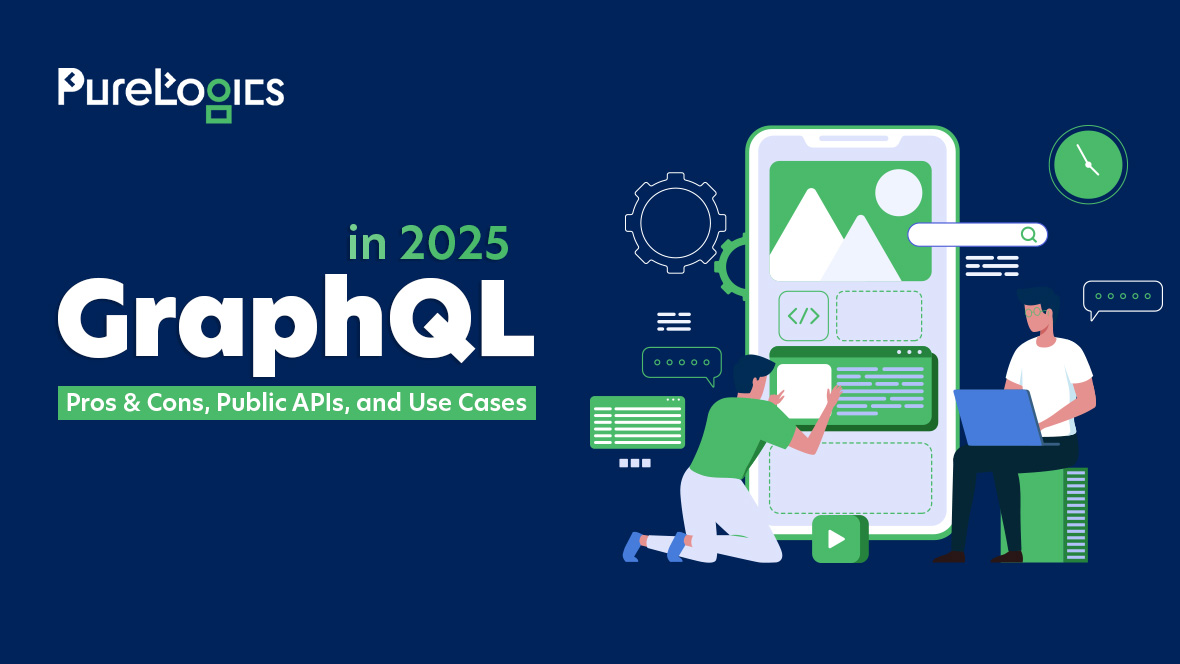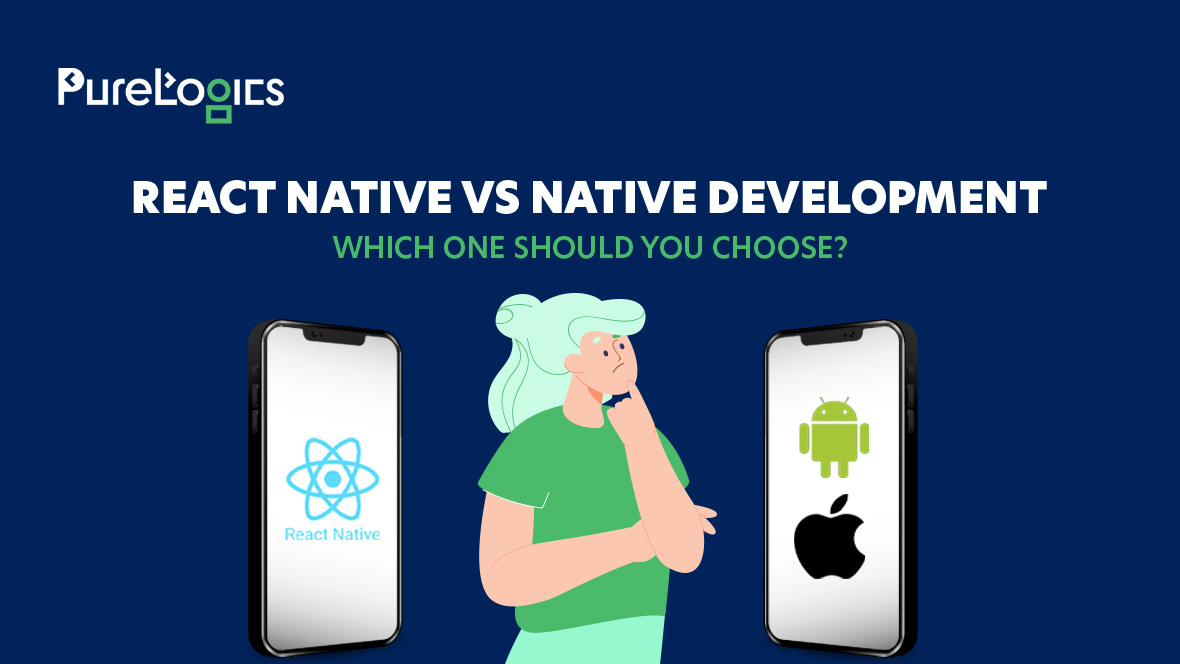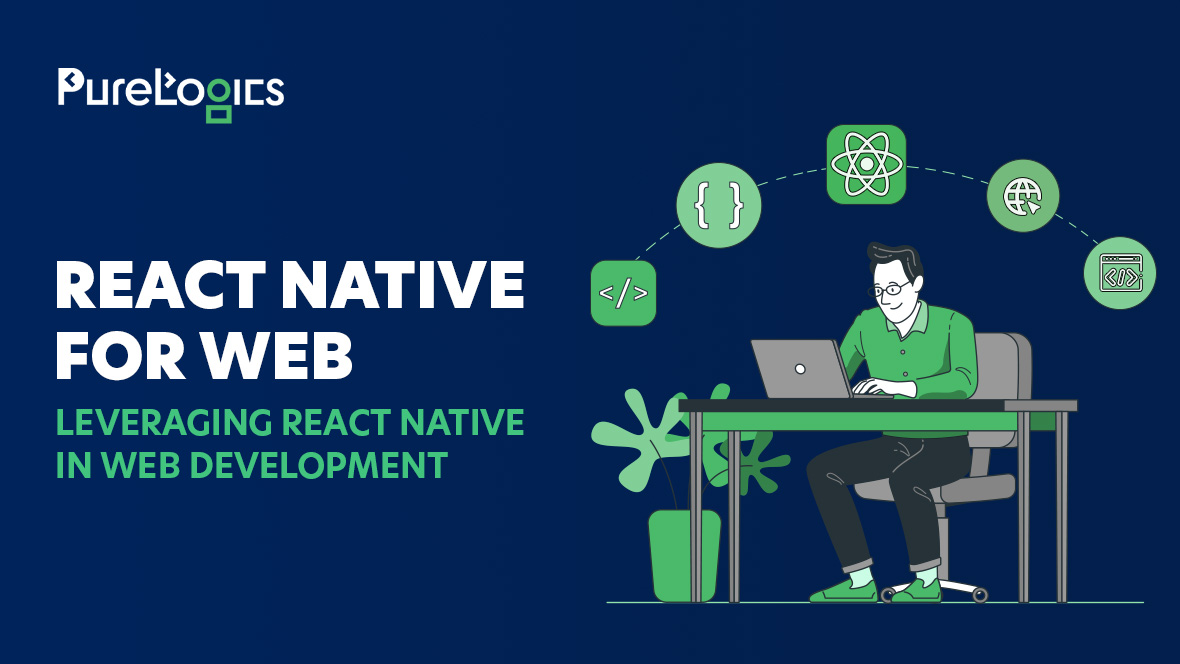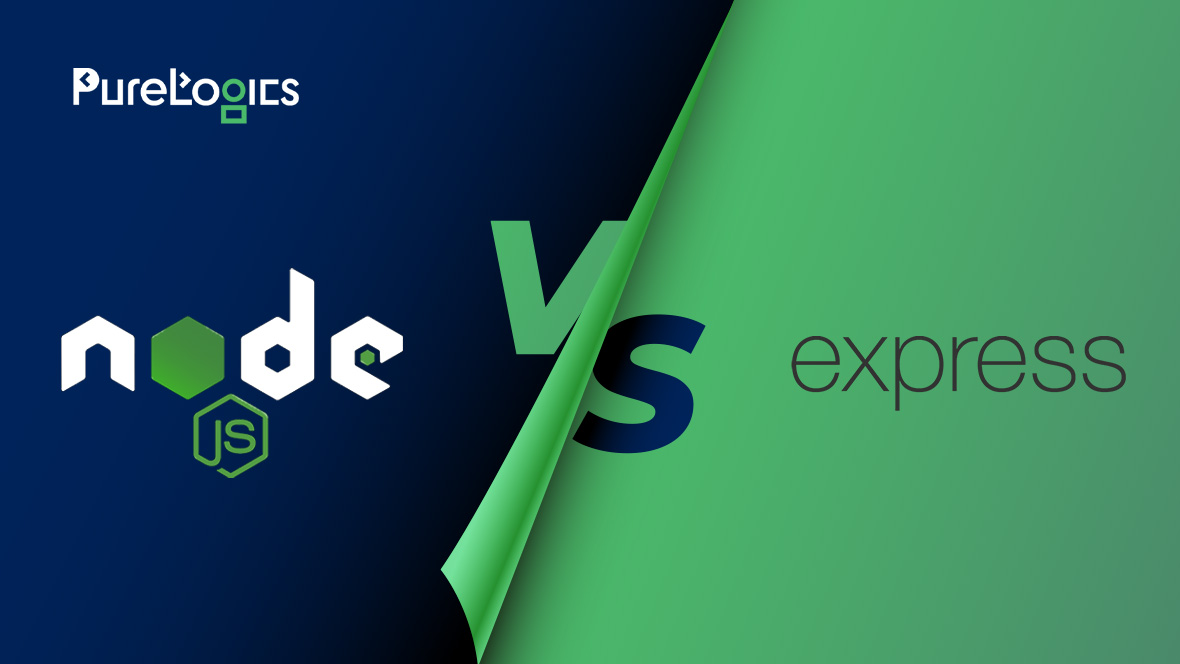Did you notice that a battle of ‘Python vs PHP for web’ is going on in the field of web development? It seems that this battle won’t end soon.
But, in this never-ending battle, your mobile app or website should not be affected at any cost. Deciding between these two programming languages is actually difficult. You won’t believe that even the smartest entrepreneurs often struggle with making this decision.
As a leading software development company in the United States, we’ll help you make a decision that suits your business needs. In this blog post, we have explained the Python vs PHP debate in detail and explored their performance, speed, as well as suitability for web development.
We are sure that by the end of this comprehensive guide, you will be in a better position to make an educated decision. So, without any further ado, let’s start reading!
What is Python?
Python is among the most versatile programming languages used for web development today. Software engineers prize Python due to its simplicity, readability, and wide range of applications.
Guido van Rossum, a Dutch programmer, created this language and first released it in 1991. The day it came to the IT industry, it gained tremendous popularity among developers and businesses. Globally-renowned tech platforms like Instagram, Spotify, and Pinterest used Python to develop their powerful web applications.
Latest Features of Python
The following are some latest features of PHP that you should not miss out on:
Python 3: Python 3 is the latest and highly adopted version of Python. It brings a wide range of improvements and enhancements over Python 2.
Type Hints: Python 3.5 introduced type hinting. It helps mobile app developers make code clarity and accuracy as it annotates functions and variable types.
Asyncio: Another latest feature of Python is its new Asyncio library. This library makes it easier for developers to write asynchronous, non-blocking code for web applications.
What is Python Used For?
When it comes to web development, Python is used for both front-end and back-end development. Its popular web frameworks are Django and Flask which allow for effective development of web applications. In addition to web development, Python is used in many other fields. Let’s have a look!
- Data Science and Analytics
- Artificial Intelligence and Machine Learning
- Scripting
- Game Development
- Desktop Application Development
Pros of Python
- Python is easy to learn and write.
- Python has extensive library support.
- Python needs fewer lines of code to perform functions.
- Python is a highly productive language due to its easy and simple syntax.
- Python is an interpreted language as it directly executes code line by line.
- Python is an open-source programming language, and free to use and share.
Cons of Python
- Python often causes run-time errors and delayed execution.
- Python is not suited for applications that need memory optimization.
- Python has weak mobile computing.
- Python lacks when it comes to database connectivity.
What is PHP?
PHP stands for “Hypertext Preprocessor.” It is a server-side scripting language especially designed for web development. Rasmus Lerdorf, a Danish-Canadian software developer, created PHP in 1994. After the release of this language, it quickly gained popularity as a powerful tool for building dynamic websites.
This open-source language is highly valued among developers and businesses for its excellent speed, flexibility, readability, and dominance in the field of web development. The globally popular websites, such as Facebook, Etsy, and MailChimp employed the PHP programming language to develop their popular web applications.
Latest Features of PHP
Let’s have a brief look at the following latest features of the PHP programming language:
PHP 8: PHP 8 offers multiple performance improvements and new features, like the JIT compiler and union types.
Attributes: PHP 8 offers attributes. It allows developers to add metadata to code elements.
Constructor Property Promotion: This feature of PHP simplifies and streamlines class definitions by integrating constructor parameter definitions with property declarations.
What is PHP Used For?
PHP is used to develop highly dynamic and interactive web applications and websites. It is primarily used for server-side web development. WordPress, Wikipedia, Facebook, Zoom, Canva, and Microsoft are some popular websites that have been developed using the PHP programming language.
According to the reports of W3Techs, around 77.5% of all websites in the world use PHP.
In addition to building websites, this programming language is also used to develop SOAP web services, RESTful APIs, visualization, and data processing.
Pros of PHP
- Developers find it easy to learn and work.
- PHP is known for its simplicity, readability, and flexibility.
- PHP is an open-source programming language and is free to use.
- PHP loads faster even if there is a slow internet connection.
- PHP-supported applications, connected to a database, load quickly.
- PHP provides an extensive library of prewritten routines.
- The PHP framework’s architectural pattern, Model-View-Controller, helps developers arrange their code.
Cons of PHP
- PHP is not fully secure due to its open-source nature.
- PHP lacks strong debugging which results in poor application upkeep.
- PHP does not support the simultaneous operation of multiple features.
- PHP is difficult to handle as it is not modular.
Python vs. PHP for Web Development: A Detailed Comparison
Now you have a basic understanding of Python and PHP. Let’s make a detailed comparison of Python and PHP for web development. It will surely help you make the correct decision.
Performance
Python is generally slower than PHP because of its dynamic typing and interpreted nature. If you want to develop a smaller and medium-sized application, Python will be the best choice as it is not suitable for high-performance applications.
On the other hand, PHP is specially designed for web development. After the launch of Zend Engine 3.0 of PHP 7, PHP won the performance battle as it significantly improved the speed of applications. Today, PHP is faster than Python.
Verdict: PHP is the winner.
Speed
The simplicity of Python sometimes translates to slower execution speed. However, the use of frameworks like Django or Flask can help you optimize the speed and performance. On the other hand, PHP is famous for its fast execution as it handles HTTP requests and serves web pages quickly.
Verdict: It’s a tie between PHP and Python.
Web Frameworks
Python offers well-designed and powerful web frameworks like Django and Flask. These frameworks are highly scalable, easy to use, fast, and secure. Software developers prefer Django over PHP frameworks because of its easy setup and shorter development time.
On the other hand, PHP also has multiple extraordinary frameworks like Laravel, Symfony, and CodeIgniter. Developers enjoy using these frameworks as they simplify the process of web development.
Verdict: Both offer high-quality frameworks, so it is a tie between PHP and Python.
Community and Support
When it comes to community and support, both programming languages have almost the same position.
Python has a large and active community with a wealth of resources. This language started receiving global limelight when Google started using PHP in its applications like YouTube. Moreover, Instagram and Uber have also been developed using this language. On the other hand, PHP is one of the oldest server-side languages and has extensive community and support.
Verdict: Both have almost the same position.
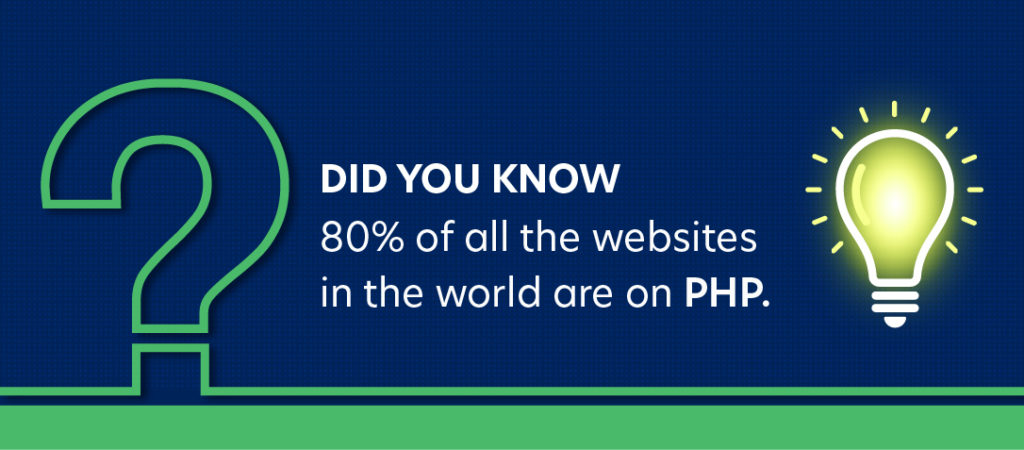
Security
The code readability of Python and its strict indentation rules help developers write better code quality. Its web framework, Django, has multiple pre-built security features. These features help developers protect the applications from different security threats.
On the other hand, PHP has some security concerns, but with the right practices and frameworks, you can build safe and secure web applications.
Verdict: In terms of security, Python wins the battle.
Database Connectivity
PHP has native support for a wide range of databases like MySQL, PostgreSQL, and Oracle. Developers prize this programming language due to its seamless integration with databases. You will be amazed to hear that PHP provides access to 20+ different databases.
On the other hand, Python also offers many libraries and modules for connecting to databases like MySQL, SQLite, and PostgreSQL. Nevertheless, database integration in Python is not as strong as PHP’s.
Verdict: PHP wins this competition.
Code Maintainability
When working on a larger project, maintaining code with Python is easy because of its clean and readable syntax. But code maintainability with PHP can be messy if you don’t organize and properly structure it. So, you need to stay focused and ensure good coding practices and frameworks with PHP.
Verdict: Python wins this code maintainability competition.
Python vs PHP: Head-to-Head Comparison
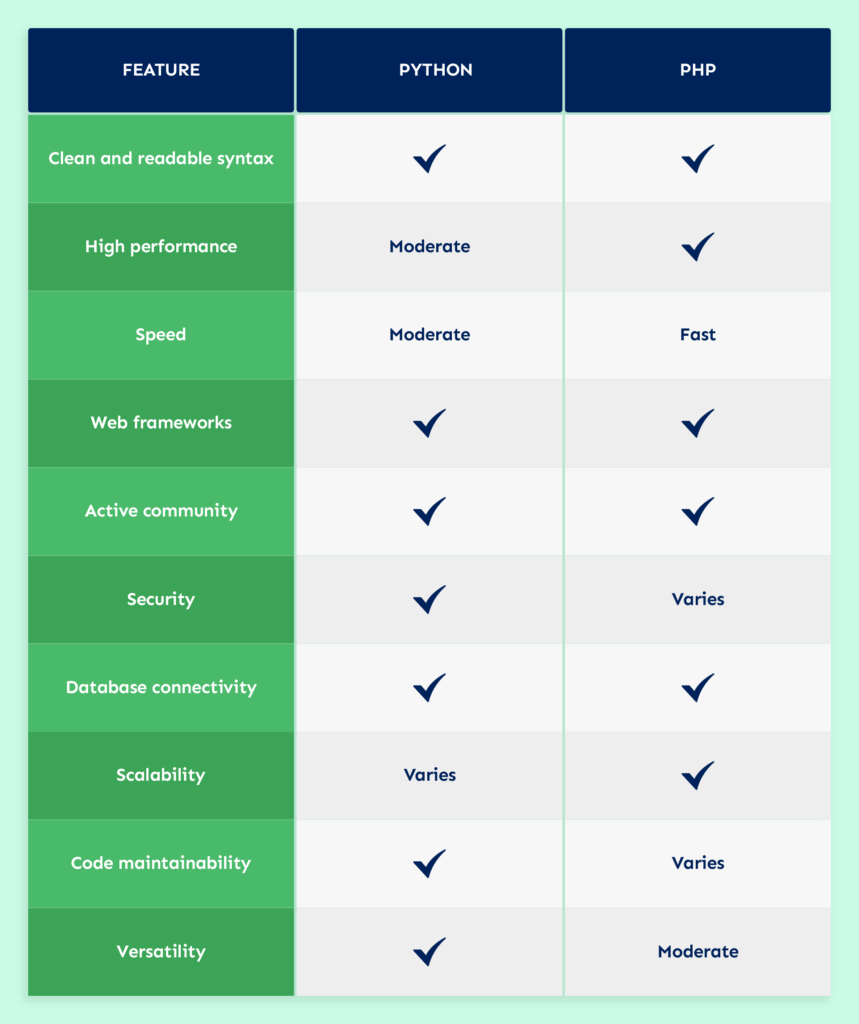
Python vs PHP: Final Remarks
Both Python and PHP have some strong and weak points. Years of web development have been performed with PHP, but Python is currently dominating the industry of web development. But still, the selection between the two languages depends on the particular needs and requirements of your business or project.
We at PureLogics, have 17+ experience in custom web app development and mobile app development. Our best and brightest team of software developers has successfully created and implemented hundreds of websites and applications.
For more information or consultation, feel free to contact us.


 [tta_listen_btn]
[tta_listen_btn]
 November 15 2023
November 15 2023

